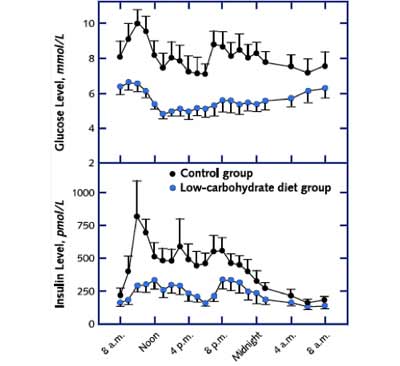
by Jackie Edwards
Coffee if drunk in moderation has a lot of health benefits. A study by Alberto Ascherio, a professor of nutrition and epidemiology, concluded that people who drank 4 or 5 cups of coffee on a daily basis drastically reduced their risk of getting Parkinson’s disease. Furthermore, C.H.S. Ruxton of Lebanon carried out a double-blind, placebo-controlled study on the effect that caffeine has on cognitive function, mood, hydration, and performance. This study done over a period of 15 years found that there were significant improvements in all these parameters. But does coffee have a positive effect in the prevention of diabetes and bringing down high blood sugar levels? Let us examine this in more detail.
What are the health benefits of drinking coffee?
Human studies have identified a few interesting health benefits of coffee consumption. Some of these are:
It can make you smarter and improve your energy levels
Coffee contains caffeine, a stimulant which is absorbed into your bloodstream and then travels to your brain. In your brain, the caffeine blocks Adenosine, which is an inhibitory neurotransmitter. Subsequently, neurotransmitters such as dopamine and norepinephrine increase which lead to an enhanced firing of neurons. The result is that various aspects of your brain function improve such as energy levels, memory and reaction times.
It acts as a great workout booster
Coffee is a great fitness and health booster if consumed before a workout. The caffeine in coffee helps to boost your metabolism. As a result, you end up burning more calories throughout the day. A shot of caffeine before your workout helps to improve your endurance and increase your performance. Drinking 2-3 cups of coffee an hour before your workout helps reduce muscle pain. Subsequently, you’ll be able to train much harder which will help to improve your muscle strength.
Coffee might protect you from developing Alzheimer’s Disease as well as Dementia
Alzheimer’s disease is a neurodegenerative disease and is one of the leading causes of dementia. Though there is no cure for Alzheimer’s disease, studies have shown that regular coffee drinkers have a 65% lesser chance of developing this disease in the first place.
What effect does drinking coffee have on your blood sugar levels?
A study was carried out about the effects of coffee consumption over a period of 4 years in the US. The study concluded that the participants who increased consumption of coffee by more than 1 cup per day had an 11% lower risk of developing type 2 diabetes in comparison to those participants who did not make any changes in their daily coffee consumption.
A study published in Diabetologia has shown that drinking coffee over the long term may reduce your risk of getting diabetes if you don’t have it in the first place. However, paradoxically, drinking coffee increases both your insulin and glucose levels. So, doctors advise that you should be cautious about consuming coffee if you already have diabetes.
How can coffee lower the risk of developing diabetes even though it raises blood sugar?
The actual reason is unknown. But, a few researchers have some theories about both the short-term effects as well as the long-term effects of coffee on blood sugar levels:
– Negative short-term effects of coffee on blood sugar:
A report from Brown University Health Education concludes that coffee increases adrenaline levels. As a result, your blood sugar levels may rise for a short period. So, if you are already diabetic, you should reduce your coffee intake. Furthermore, as a diabetic patient, you should never have coffee with sweeteners of any kind as that can make your blood sugar levels jump up drastically.
– Positive long-term effects of coffee on blood sugar:
A study done on the effects of caffeine on 665 Japanese males was carried out in 2010 and concluded that regular coffee drinkers have a higher level of adiponectin, a protein which helps in regulation of blood sugar levels. Also, coffee is rich in antioxidants. These might influence your insulin and blood sugar levels positively. Drinking coffee for a long period may help your body build up a tolerance to caffeine. As a result, your body becomes more resistant to fluctuations in blood sugar levels.
The bottom line is that drinking coffee can have different effects on various people. If you already have diabetes, then you should monitor your blood sugar levels regularly and see the effects of coffee consumption. In case you see that your blood sugar levels go up significantly, then opting for decaf coffee is a better option.





